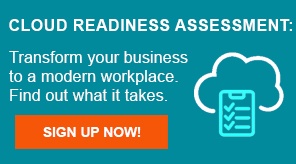How to Prepare your Business to Survive the Next Crisis
 September is National Preparedness Month and with hurricane season upon us, it's important to make sure that you have a Disaster Recovery and Business Continuity plan in place in case of an extended power outage from a catastrophic event such as a natural disaster.
September is National Preparedness Month and with hurricane season upon us, it's important to make sure that you have a Disaster Recovery and Business Continuity plan in place in case of an extended power outage from a catastrophic event such as a natural disaster.
But if there is one thing that 2020 has taught us, it’s that disasters can come in all shapes and sizes and with little to no warning.
Fire Tornados. Cyberattacks. Pandemics. Economic Recessions. The list goes on.
When your business experiences downtime, there is a real cost associated with that event. The financial losses are significant and include recovery labor and equipment replacement. Not to mention indirect losses that you could experience including a decline in employee productivity, unsatisfied clients and missed business opportunities.
So how can your business prepare for these types of events?
You can create a business continuity and disaster recovery plan!
- Business Continuity is defined as a plan to ensure that critical business functions can continue operating with minimal downtime in the event of an interruption.
- Disaster Recovery is the plan to restore business processes within a certain amount of time in the event of a disaster. This is required so business continuity can occur.
Disaster Recovery and Business Continuity planning require businesses to examine all possible scenarios and put an actionable and tested plan in place to respond to -and recover from - each of those potential events. It is the best way for businesses to reduce risks and cut their losses.
What type of risks should you consider?
- The COVID-19 pandemic is a case in point. With employees suddenly ill or working from home, many businesses scrambled to maintain critical functions while transitioning to a new model.
- Depending on your geographic location, natural disasters may be a big part of your plan. If you have offices or remote workers in Florida or Louisiana for example, your plan should have a heavy focus on hurricane response, whereas if you work in California you should prepare for earthquakes and wildfires. Even in the Mid-Atlantic region, where we are generally safe from those types of natural disasters, Hurricane Sandy proved we are not exempt. In fact, experts predict that climate change will bring about more of them.
- Cybercrime, such as Ransomware attacks can encrypt your data leading to days of downtime if not prepared.
What can you do now to better prepare for the next event?
- Back Up Your Data! Without question, when it comes to data loss prevention and minimizing downtime, there is one absolutely must-have: a reliable, redundant backup solution to access your business data in a moments notice.
- Embrace modern technologies and the cloud. As we’ve seen with COVID-19, if your office is inaccessible for any extended period of time, your employees need to be able to work from home. With modern IT you get secure, easy access to your business data, applications and your phone systems, so your employees can continue to serve your customer-base as if they were still in the office.
- Designate leaders and have a crisis communication strategy in place. When it comes to a disaster, communication is key. Your employees and customers need to be in the loop on the status of the situation, what you’re doing to alleviate any service delays and when they expect service to return to normal.
- Revisit your plan regularly and test frequently. There is no sense in planning if it’s not tested and proven to work. Every few months test the processes in place. Ask your employees to work from home to see if the technologies you have are sufficient. Meet with your business leaders and your managed IT provider to review and update the plan to include any new situations or changes that may have occurred since the last review. This may uncover potential flaws in your plan that you can fix now while you still have time.
ANP is here to help to help!
If you’re unsure whether your data backup solution is adequate, or if you would like to assess your existing technologies and lay out a roadmap to get rid of your old-school IT and move to a modern, cloud-based solution, talk to your managed service provider or contact ANP today at (215) 572-0111.

